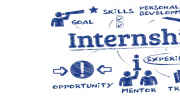Autumn 2022 | NOAA is offering paid summer internships, named the 2023 Lapenta Internship, targeted towards current 2nd and 3rd-year undergraduate and enrolled graduate students to work in areas that will provide robust research and/or operational experience to prepare them for further study in NOAA fields, for application to fellowships, or for the NOAA-mission workforce. Projects may be focused on research areas or the… Read More
Did you know?: New UCAR and WPO fellowships for PhDs
Autumn 2022 | UCAR’s Cooperative Programs for the Advancement of Earth System Science (CPAESS) is excited to announce the launch of a new fellowship with NOAA's Weather Program Office (WPO): the WPO Innovation for Next Generation Scientists (WINGS) Dissertation Fellowship. The WINGS Fellowship is designed for Ph.D.… Read More
PROUD Award - Excellence in Action: Man Zhang, Research Scientist II CU/CIRES and NOAA GSL
Performance Recognition for OUtstanding DTC achievements (PROUD) Award

2022-11-14 | Man Zhang works for CU/CIRES at NOAA GSL and contributes to three DTC projects: Testing and Evaluation of Unified Forecast System (UFS) Physics for Operations, Toward a Unified Physics Package for the UFS Applications, and CCPP Software Support & Community Engagement. Man has gone above and beyond the call of duty to mentor a student during the Summer of 2022. It all started when she wrote about an idea for a short project, which caught the eye of CU Denver undergraduate student Jessica Paredes Saltijeral, a… Read More
Lead Story: Advances in the Rapid-Refresh Forecast System as Seen in NOAA’s Hazardous Weather Testbed’s Spring Forecasting Experiment
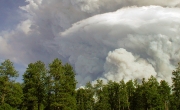
Summer 2022 | The Rapid Refresh Forecast System (RRFS) is a critical component of NOAA’s Unified Forecasting System (UFS) initiative which has been in development for several years and is planned for operational implementation in late 2024. The RRFS will provide the NWS an hourly updating, high-resolution ensemble capability that uses a state-of-the-art, convective-scale ensemble data assimilation and forecasting system with the Finite-Volume Cubed Sphere Dynamical core (FV3). Further, the RRFS will… Read More
Director's Corner: The era of funky grids, influence of interpolation, and the importance of community verification codes
Marion Mittermaier
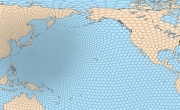
Summer 2022 | Model intercomparison has always come with challenges, not least of all, the decisions such as which domain and grid to compare them on and the observations to compare them against. The latter also involves the often “hidden” decision about which interpolation to use. We interpolate our data almost without thinking about it and forget just how influential that decision might be. Let’s also add the software into the mix, because, in reality we need to. In 2019 the UK Met Office made the decision to adopt METplus as the… Read More
Who's Who: Will Mayfield
Summer 2022 | Will Mayfield began working with the DTC as a co-lead on the Data Assimilation (DA) team. His project focused on the Gridpoint Statistical Interpolation (GSI) software. However, he recently transitioned into a co-lead for two projects: the Unified Forecast System (UFS) Short Range Weather (SRW) App support as well as Ensembles Testing and Evaluation. Successfully executing these roles demands a balance of software support, investigative science work, and project management. He has also collaborated on a variety of other… Read More
Bridges to Operations: Creation of an Agile RRFS Prototype Testing Framework to Inform and Accelerate Operational Implementation
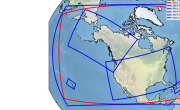
Summer 2022 | Within the effort to unify the NCEP operational model suite, taking place under the Unified Forecast System (UFS) umbrella, a key area of interest is the evolution of legacy operational, convective-allowing systems to a new, unified Finite-Volume Cubed-Sphere (FV3)-based deterministic and ensemble storm-scale system called the Rapid Refresh Forecast System (RRFS). The ongoing transition from the existing NOAA NWP systems to the UFS is a major multi-year undertaking, with the RRFS targeted for initial operational… Read More
Visitors: Development of GSI Multiscale ENKF Data Assimilation for Convection-Allowing FV3 Limited Area Model
Visitor: Chong-Chi Tong
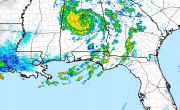
Summer 2022 | Accurately predicting weather down to the convective storm scales requires setting initial model conditions that accurately represent the atmospheric state at all scales (from the planetary through synoptic large-scale, mesoscale, to convective). The importance of these various interactions can not be overlooked. A well-performing data assimilation (DA) system must accurately analyze flow features at all scales. For this visitor project, a multi-scale DA capability within the GSI-… Read More
Community Connections: International Community Participates in First METplus Users’ Workshop
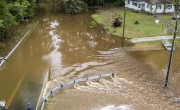
Summer 2022 | The first DTC METplus Users Workshop was held virtually June 27th through June 29th, 2022 covering a multitude of topics and application areas. METplus became an operational software tool for NOAA NCEP Central Operations in 2021 and provides a framework for all components needed to provide ease-of-use and diagnostic capability to the Model Evaluation Tools (MET) package first released by the DTC in 2008, which originally began through and continues to benefit from the generous support of the Air Force. The last MET… Read More
Did you know?: The METexpress Visualization Suite
Summer 2022 | A major advancement of the Unified Forecast System Research-to-Operations (UFS-R2O) project has been the implementation of the DTC’s advanced Model Evaluation Tools (METplus) as a unified verification system for community model-development efforts. A community verification tool is important for this sort of decentralized development endeavor, as it gives all participants a common framework for evidence-based decision making when transitioning these models to operations. METplus processes numerical weather prediction… Read More
Software Release: CCPP and CCPP SCM v6.0.0 release announcement

2022-06-29 | The Developmental Testbed Center (DTC) is pleased to announce the Common Community Physics Package (CCPP) v6.0.0 public release on June 29,2022. This release contains the CCPP Physics, a library of physical parameterizations, the CCPP Framework, an infrastructure that connects the physics to host models, and the CCPP Single Column Model (SCM), a simple host model that employs the CCPP Physics and CCPP… Read More
Software Release: UPP V11.0.0 Release

2022-06-15 | This release represents a major effort to refactor the UPP code to implement a 2-Dimensional decomposition capability. This development was led by UPP developers at NOAA’s Environmental Modeling Center (EMC) with funding through the Hurricane Supplemental funding line. Please see the Users Guide in links below for details on how to use this capability. Release Highlights: Capability added to decompose grids in both x- and y-directions. 1D (y-direction only) decomposition is still available. Identical results… Read More
Software Release: UPP V10.1.0 Release

Summer 2022 | The Developmental Testbed Center (DTC) is pleased to announce the release of the Unified Post Processor Version 10.1.0. This release can be used in standalone mode and is also the version to be used as the post processor component in the upcoming UFS Short Range Weather (SRW) and Medium Range Weather (MRW) Application releases. Release Highlights Since the last public release was announced, a number of features have changed, notably: HPC-stack is used for prerequisite NCEPLIBS libraries NEMSIO format is no longer… Read More
Lead Story: The Local Land-Atmosphere Coupling (LoCo) Project
Building Tools and Knowledge to Facilitate R2O and Improved Weather and Climate Prediction

Spring 2022 | Over the last two decades, the hydrometeorological community has made significant progress identifying, understanding, and quantifying the land-atmosphere (L-A) interactions that influence Earth’s water and energy cycles. Under the Global Energy and Water Exchanges (GEWEX; https://www.gewex.org) project,… Read More
Director's Corner: The NOAA Testbeds and Proving Grounds: A coordinated effort to transition research to operations, services and applications
Andrea Ray and J.J. Brost

Spring 2022 | The Test Bed and Proving Ground Coordination Committee (TBPGCC, www.testbeds.noaa.gov) is composed of representatives from the 12 NOAA Testbeds (TBs) and Proving Grounds (PGs), including a member from the DTC.
Pagination
Copyright © 2026. All rights reserved.
